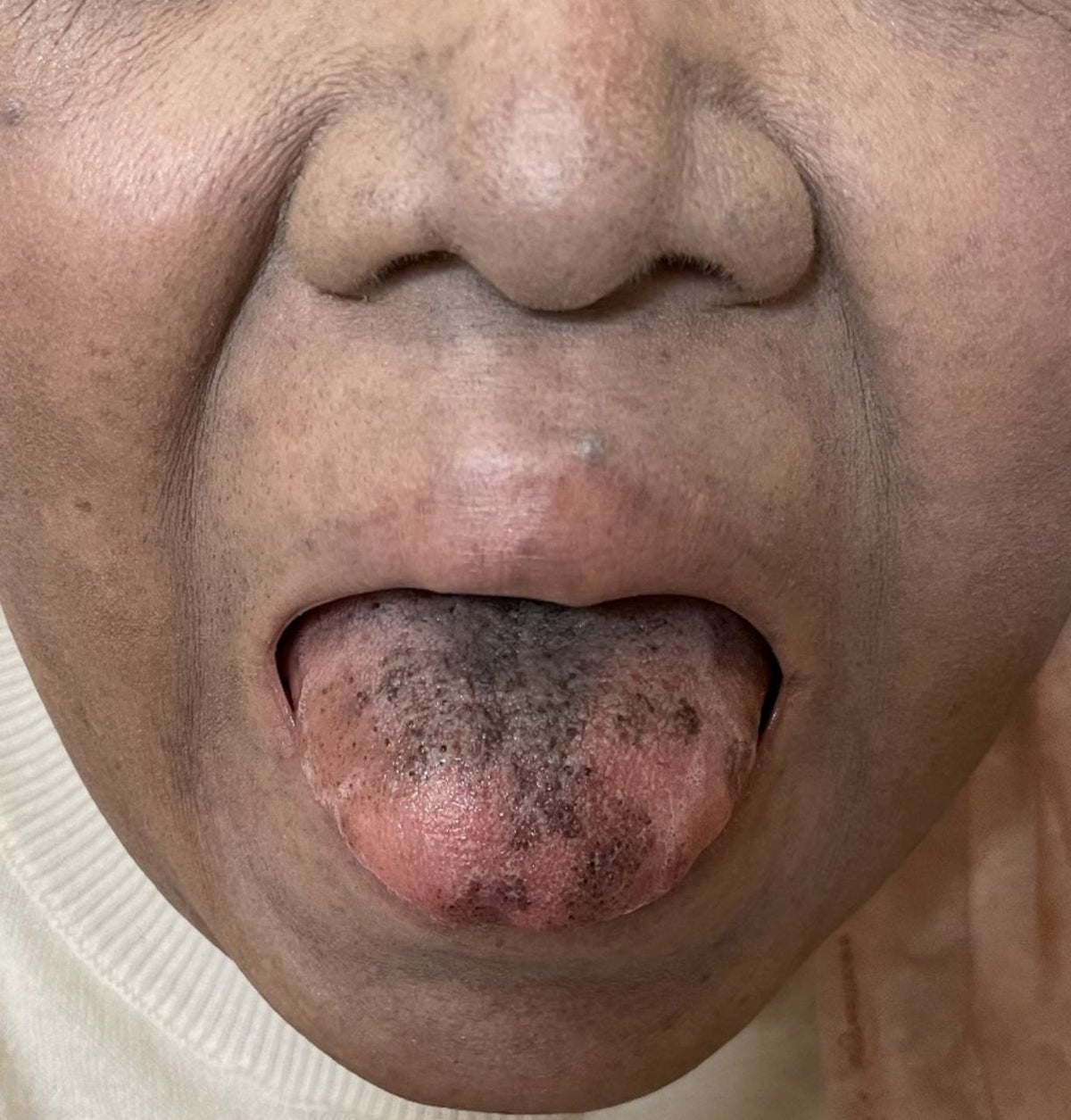
The tongue of a cancer patient turned black and hairy, likely as a result of a rare reaction to antibiotics used in her treatment doctors say.
The Japanese woman in her sixties was battling rectal cancer and had been undergoing chemotherapy for fourteen months following surgery. She had been taking the medication to counteract the side effects the treatment.
The affected area was described as a “brownish-black patch” with “prominent hair-like” growths and was said to be painful, the British Medical Journal reports.
As well as affecting her tongue the patient also developed grey skin on her face, doctors say.
Her treatment included the cancer drug panitumumab plus the antibiotic minocycline to prevent the panitumumab from causing skin lesions.
The woman was sent in for treatment for hepatitis B when she was diagnosed with drug-induced hyperpigmentation and a black hairy tongue (BHT).
BHT is a harmless condition often associated with poor oral hygeine.
However, the condition can also occur as a reaction to various drugs including a wide-range of antibiotics. Doctors concluded that the condition was most likely caused by minocycline.
While panitumumab could also have caused the condition, doctors decided that the antibiotic was a more likely culprit as the grey skin on her face was characteristic of minocycline-induced skin damage, according to the British Medical Journal case report.
The patient was taken off minocycline and prescribed a new combination of drugs. Six weeks later, her facial pigmentation and BHT had improved markedly.
While it can look unpleasant BHT is temporary and harmless.
The strange look is usually caused by a build-up of dead skin cells on the papilla — tiny raised protrusions on the surface of the tongue that contain taste buds.
As well as some antibiotics and poor oral hygiene the condition can also be triggered by tobacco, alcohol, and irritating mouthwashes.
Treatments include good oral hygiene, stopping smoking, brushing with a soft toothbrush, and eating fresh pineapple.







